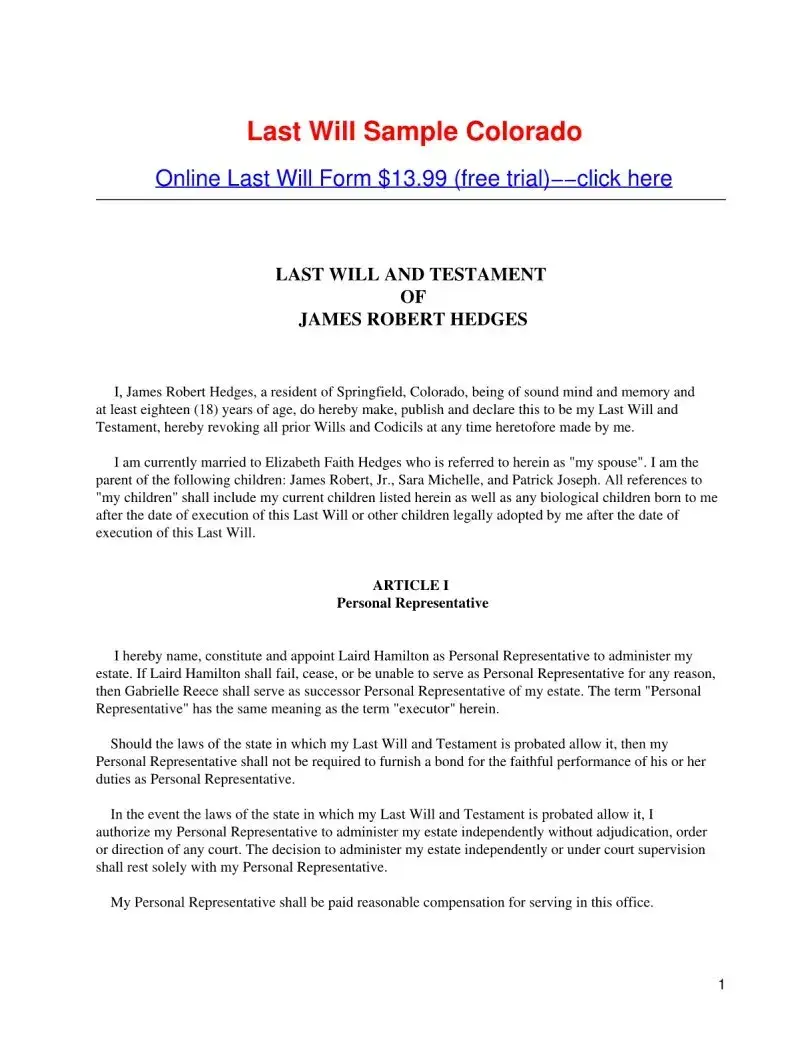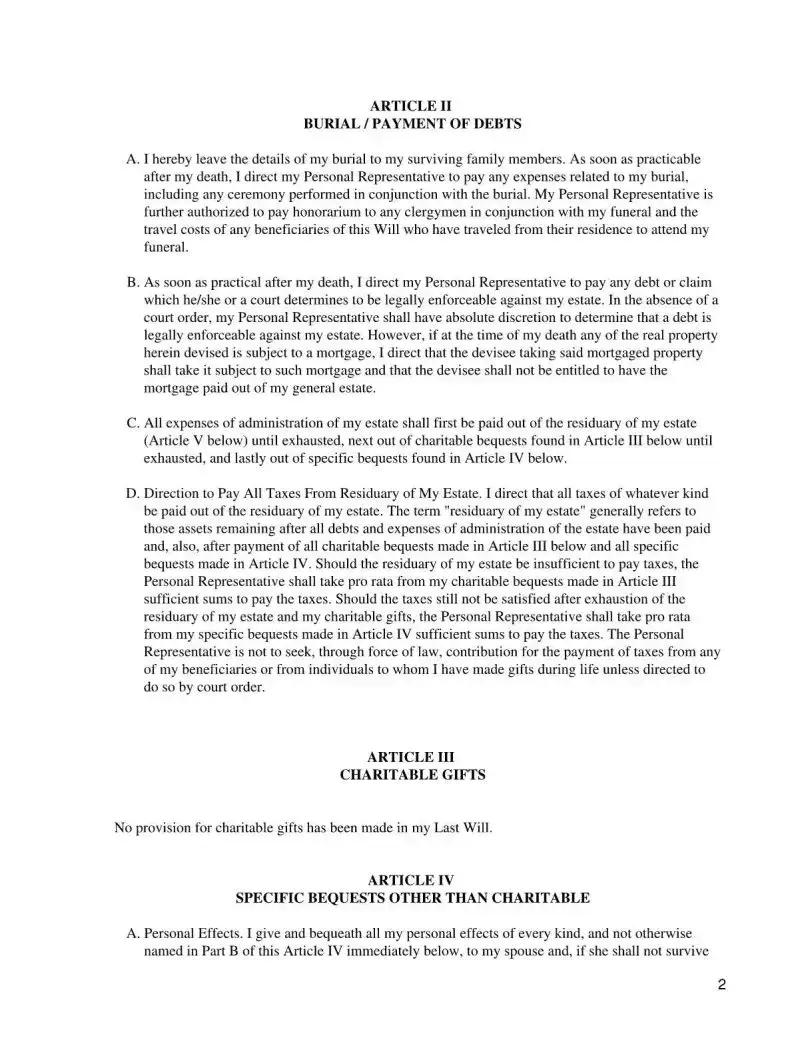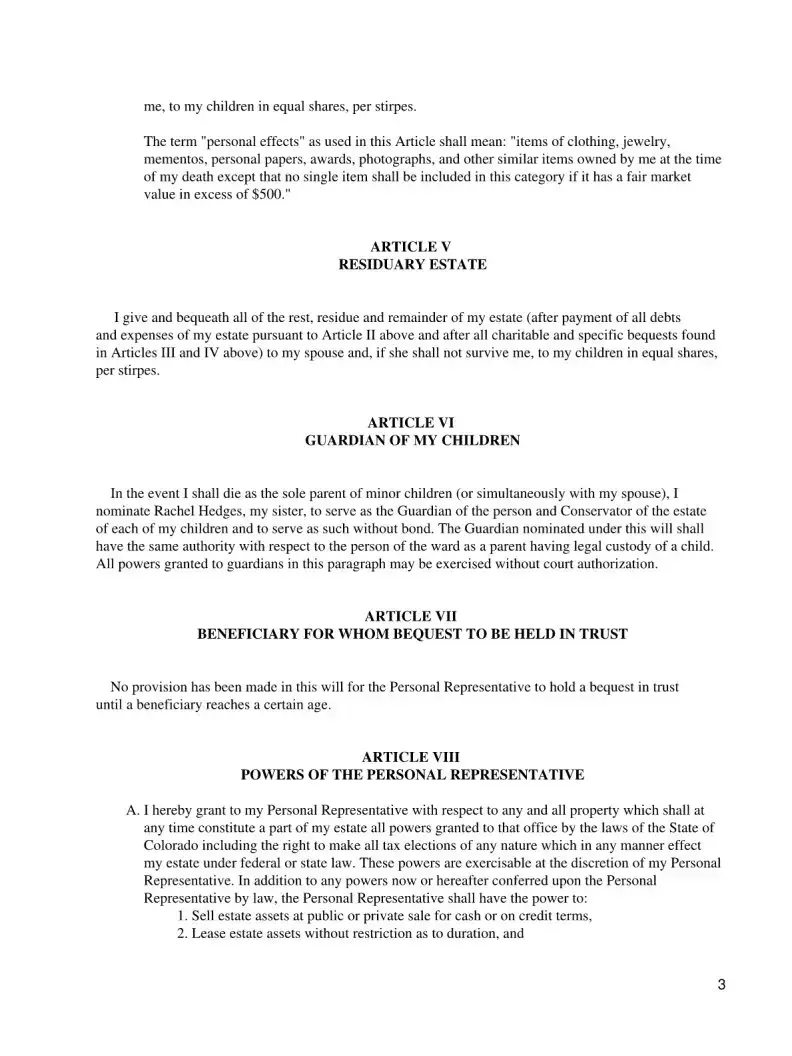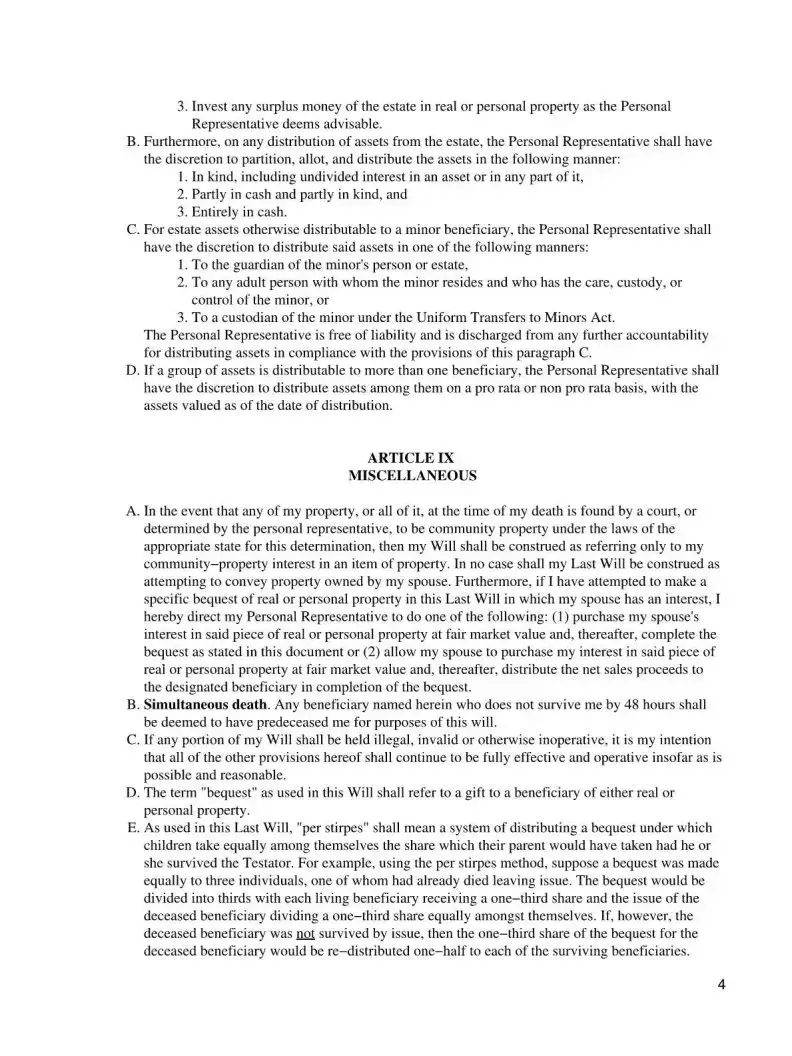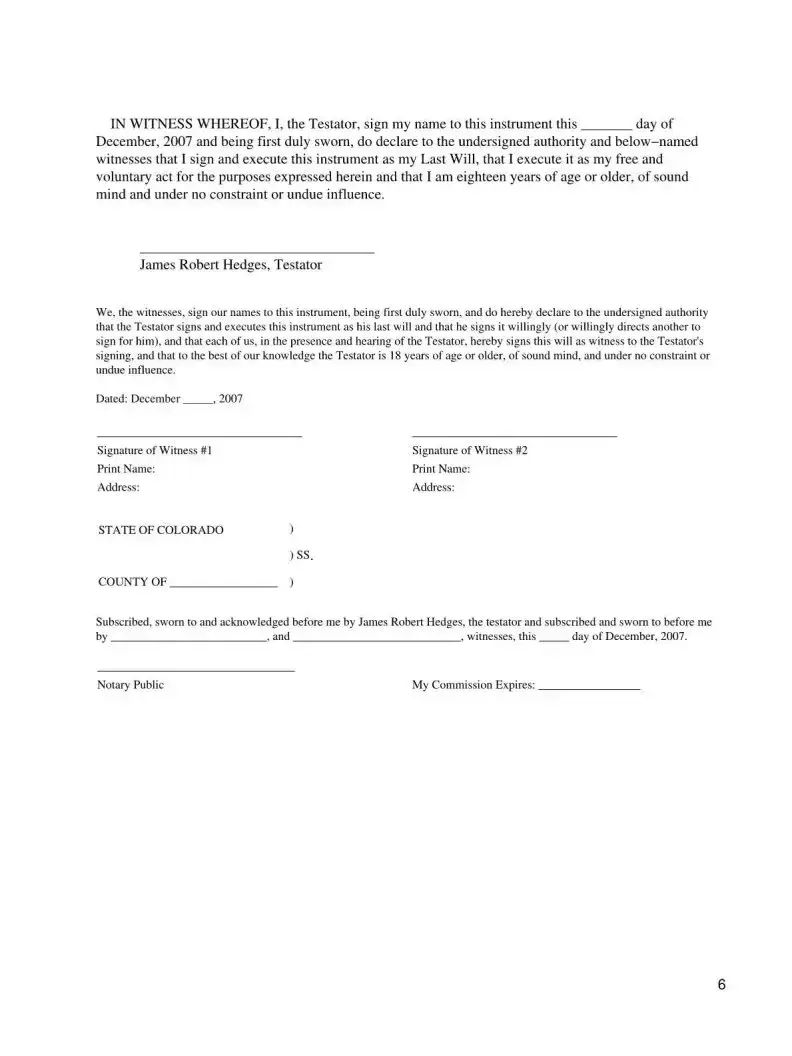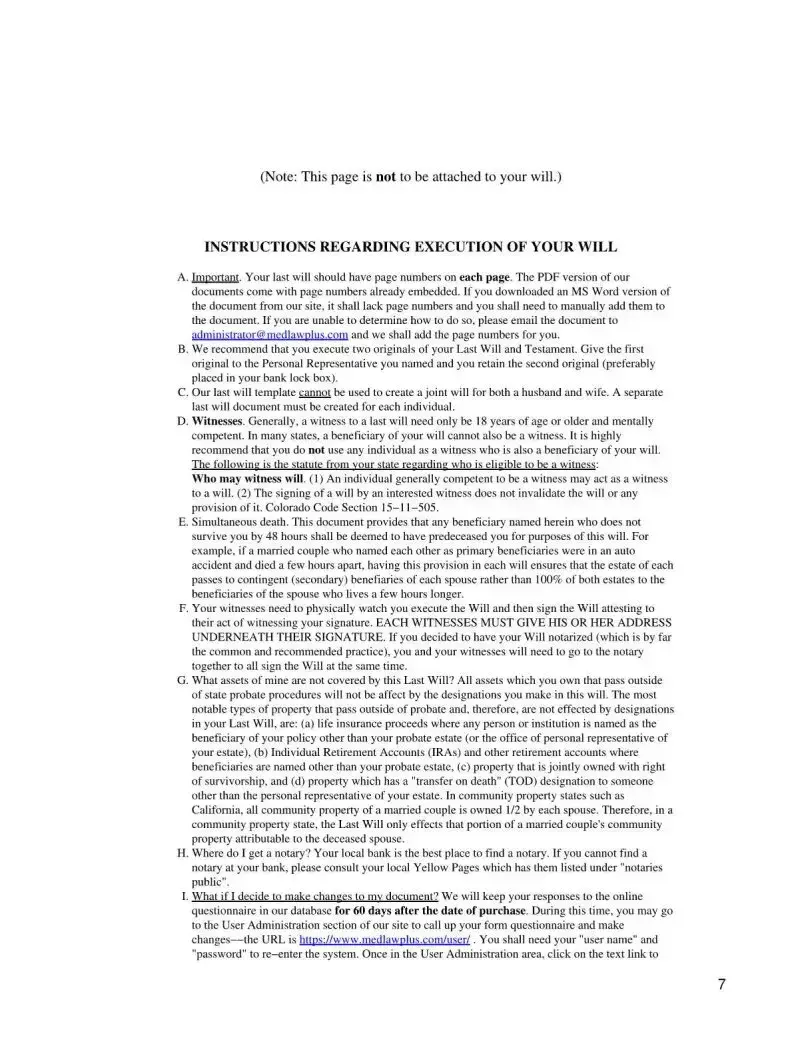What is a Colorado Will form?
A Colorado Will form, often simply called a Will, is a legal document in which a person, referred to as the testator, outlines their wishes regarding the distribution of their property and the care of any minor children upon their death. This document is crucial for ensuring that the testator's assets are distributed according to their wishes rather than being distributed based on state laws of intestacy, which apply when someone dies without a Will.
Who can create a Will in Colorado?
In Colorado, any individual who is at least 18 years old and of sound mind can create a Will. Being of "sound mind" generally means that the individual understands the nature of the document being created, is aware of their property and assets, and understands the identities of those who are the natural beneficiaries of their estate.
Do I need a lawyer to create a Will in Colorado?
While it's not a legal requirement to have a lawyer draft your Will in Colorado, consulting with an attorney can be beneficial, especially if your estate is large or complex. A lawyer can help ensure your Will complies with Colorado law, provide advice on estate tax issues, and help ensure that your wishes are clearly expressed and legally enforceable.
How can I ensure my Colorado Will is valid?
To ensure your Colorado Will is valid, you must follow several legal formalities. The Will must be in writing, signed by the testator, and witnessed by at least two individuals, both of whom must be present at the same time and observe the testator signing the document. These witnesses also need to sign the Will, affirming they witnessed the testator’s signature. Additionally, it is advisable to have the Will notarized, although this is not a requirement for validity in Colorado.
What should I include in my Colorado Will?
In your Colorado Will, you should clearly identify all property and assets you own and specify who will inherit these items. You can also appoint an executor, who will be responsible for carrying out the terms of the Will, and a guardian for any minor children, should both parents pass away. It's also wise to include alternate beneficiaries in the event your primary beneficiaries predecease you.
Can I change or revoke my Colorado Will?
Yes, you can change or revoke your Colorado Will at any time as long as you are of sound mind. This can be done by creating a new Will that states it revokes the old one or by physically destroying the original document with the intent of revoking it. To modify your Will without replacing it entirely, you might use an amendment known as a "codicil," although it may be more straightforward to make a new Will.
What happens if I die without a Will in Colorado?
If you die without a Will in Colorado, your estate will be distributed according to the state's intestacy laws, which may not align with your wishes. Generally, the assets will go to your closest relatives, starting with your spouse and children. If you are unmarried with no children, assets may go to your parents, siblings, or other relatives. A court will also appoint a guardian for any minor children, potentially someone you might not have chosen.
